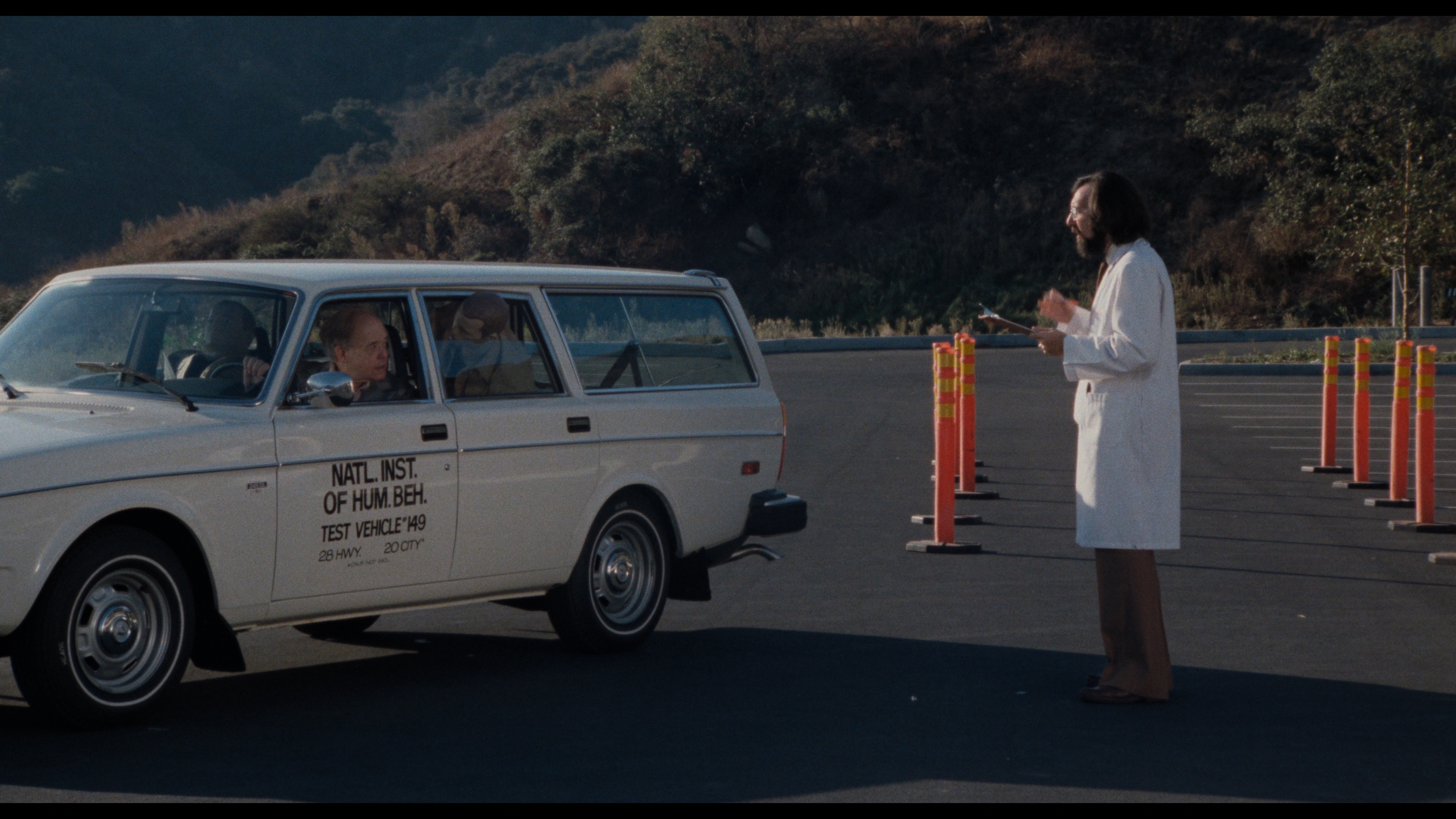Real Life

See more details, packaging, or compare
Synopsis
Decades before reality television reigned supreme, there was Albert Brooks’s debut feature, Real Life, a brilliantly deadpan, stylistically innovative satire about the perils and pitfalls of trying to capture the truth on film. The writer-director plays “Albert Brooks,” a narcissistic Hollywood filmmaker who plans to spend the year in Phoenix embedded with Warren and Jeanette Yeager (Charles Grodin and Frances Lee McCain) and their two children, deploying an arsenal of cutting-edge equipment (including the over-the-head Ettinaur 226XL camera) to capture an American family’s ordinary day-to-day. Chronicling the project’s disastrous fallout, as the meddlesome Albert can’t help getting too close to his subjects, this pioneering mockumentary is more relevant than ever amid today’s media landscape.
Picture 9/10
Albert Brooks’ debut feature Real Life makes its way into The Criterion Collection with an all-new 4K UHD special edition. The film is presented in HDR10 with a 2160p/24hz ultra high-definition encode, maintaining its original aspect ratio of 1.85:1 on a dual-layer BD-66 disc. This release is sourced from a fresh 4K restoration and also includes a standard dual-layer Blu-ray, offering the film in 1080p along with all of the special features.
Opting for a faux-documentary look, Real Life visually stands out, at least more than, say, something like Mother. While it’s not a film that initially screams for a 4K edition, Criterion has deemed it worthy, and the results are impressive. Despite the film's aesthetic potentially hindering the end results, it still boasts a sharp and stable presentation, with every detail rendered cleanly—even down to the prominent grain. The restoration notes indicate that the 35mm original camera negative was scanned, and while that appears to be the primary source for most of the presentation, some shots suggest otherwise due to their dupey nature. Sequences with titles or crawling text seem to be sourced from a later-generation print, which makes sense, as these titles would have been added later during the development process (using the negative for these sequences would have required a digital recreation). This results in a few fuzzier shots and coarser grain in these moments, but even then, the presentation retains its photographic texture. It all looks natural and clean, never faltering in this regard.
The application of HDR enhances the film nicely. It’s not overdone, but darker sequences look particularly clean with impressive range (such as a late sequence where film clips are studied in a darkened room and the film’s final nighttime shot), and highlights are sharp without sacrificing detail. As for the restoration work, aside from a few minor print blemishes, the image is nearly spotless—a far cry from previous presentations. In the end, it’s a very pleasant surprise.








































Audio 7/10
Presented in lossless single-channel PCM, the film’s monaural soundtrack is excellent, offering a surprisingly broad range between lows and highs. Dialogue is clear and easy to understand, while the music comes through sharp and crisp.
Extras 4/10
As with Criterion's other Brooks titles, the special features are fairly slim. Brooks participates in another interview (30 minutes), where he delves into his background and early career before discussing how he managed to get his first film off the ground. It’s not at all surprising to learn that he almost didn’t get the film made. He also takes time to talk about the production and his co-stars Charles Grodin and Frances Lee McCain. McCain, in turn, discusses her performance in the film and her subsequent career, which often focused on playing maternal roles. Her interview runs 15 minutes.
What would have made sense for this edition, given that it’s Brooks’ debut feature, would have been to include some of his early shorts. Although Brooks touches on them in his interview, Criterion drops the ball by not including any of them. At least they included Brooks’ hilarious (3D) trailer for Real Life.
On the bright side, A.S. Hamrah’s essay, found in the included insert, admirably explores Brooks’ career and the film’s production, as well as the satirical elements about Hollywood that it tackles. Still, it doesn’t quite make up for the lack of additional features.
Closing
The special features may disappoint once again, but the 4K presentation exceeds expectations.








